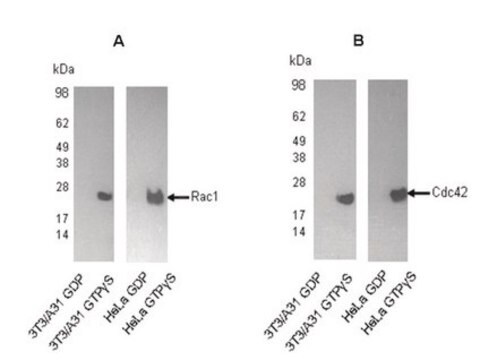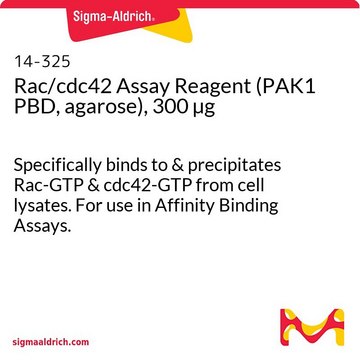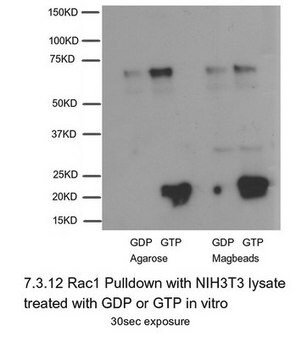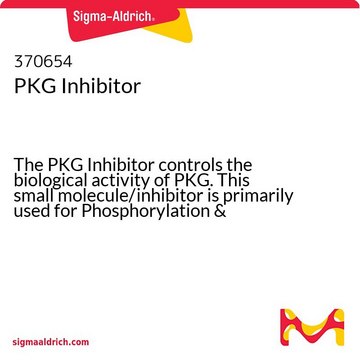17-283
Rac1 Activation Assay Kit
Non-radioactive Rac1 Activation Assay Kit can be used to precipitate Rac1-GTP from cell lysates & detection by a Rac1 specific monoclonal antibody.
Synonyme(s) :
Activation Assay Kit, Rac1 Activity Kit, Rac1 Assay Kit
About This Item
Produits recommandés
Niveau de qualité
Espèces réactives
human, rat, mouse
Fabricant/nom de marque
Upstate®
Technique(s)
activity assay: suitable
affinity binding assay: suitable
Numéro d'accès NCBI
Numéro d'accès UniProt
Conditions d'expédition
dry ice
Informations sur le gène
human ... RAC1(5879)
Description générale
Application
Composants
Mg2+ Lysis/Wash Buffer, 5X (Cat.# 20-168)
100X GTPγS, 10mM (Cat.# 20-176)
100X GDP, 100mM (Cat.# 20-177)
Rac/cdc42 Assay Reagent (PAK1 PBD, agarose) (Cat.# 14-325)
Qualité
Liaison
Informations légales
Mention d'avertissement
Danger
Mentions de danger
Conseils de prudence
Classification des risques
Aquatic Acute 1 - Aquatic Chronic 2 - Eye Dam. 1
Code de la classe de stockage
10 - Combustible liquids
Certificats d'analyse (COA)
Recherchez un Certificats d'analyse (COA) en saisissant le numéro de lot du produit. Les numéros de lot figurent sur l'étiquette du produit après les mots "Lot" ou "Batch".
Déjà en possession de ce produit ?
Retrouvez la documentation relative aux produits que vous avez récemment achetés dans la Bibliothèque de documents.
Notre équipe de scientifiques dispose d'une expérience dans tous les secteurs de la recherche, notamment en sciences de la vie, science des matériaux, synthèse chimique, chromatographie, analyse et dans de nombreux autres domaines..
Contacter notre Service technique










